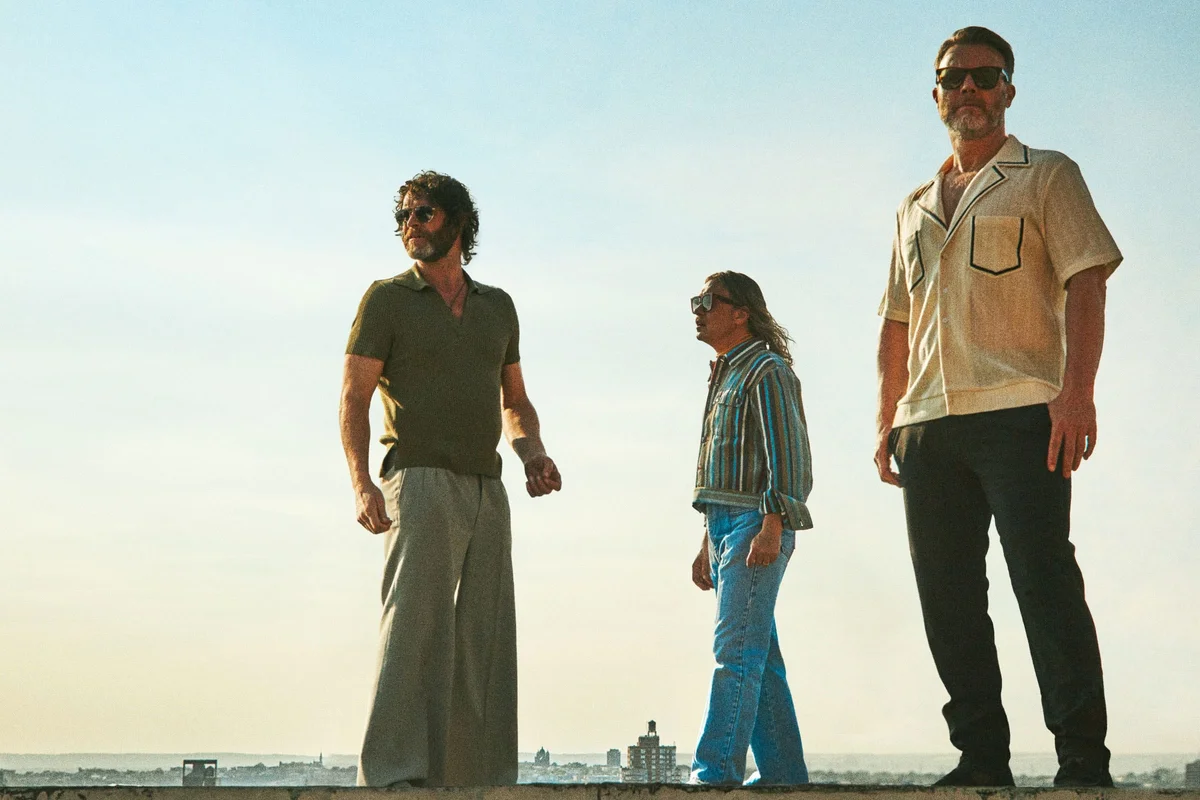
Take That
Wednesday, Jul 1, 2026
19:00:00
, Manchester
Etihad Stadium, a colossal architectural marvel situated in the vibrant heart of Manchester, UK, transcends its primary identity as the home of Manchester City Football Club. It stands as a beacon of large-scale entertainment, a stage where the roar of thousands amplifies the magic of live music, transforming the iconic arena into an electrifying cauldron of sound and spectacle. This is not just a venue; it's an experience, a testament to Manchester's enduring spirit of hosting world-class events that resonate long after the final encore. Here, scale meets soul, and the sheer immensity of the space is imbued with a palpable energy that only a truly grand arena can provide.
The story of Etihad Stadium is intrinsically linked to the regeneration of East Manchester, a significant urban development project that aimed to revitalize an area previously known for its industrial heritage. Construction began in 2000, with the stadium officially opening its doors in August 2002, initially as the City of Manchester Stadium. It was built to host the 2002 Commonwealth Games, a momentous event that showcased Manchester on a global stage and provided the city with a state-of-the-art sporting and entertainment facility. The stadium’s innovative design, conceived by architects Populous (then known as HOK Sport), featured a unique modular construction that allowed for easy adaptation. Its signature feature, the adaptable roof, could be extended to cover the stands, creating a more intimate atmosphere for concerts while maintaining its capacity for sporting events. This forward-thinking architectural approach laid the groundwork for its transition into a premier destination for live music.
While its sporting significance is undeniable, Etihad Stadium's transition into a major concert venue marked a significant chapter in Manchester's cultural landscape. The sheer scale of the stadium allows it to attract artists and bands whose global popularity necessitates venues capable of hosting tens of thousands of fans. This capacity has made it an indispensable part of the touring circuit for major international acts, bringing world-class live music directly to the North West of England. Its ability to host such large-scale events has solidified Manchester's reputation as a global entertainment hub, providing economic benefits and cultural enrichment to the region. The stadium's presence has also spurred further development and investment in the surrounding area, enhancing its status as a key entertainment district.
The sheer scale and capacity of Etihad Stadium, its ability to accommodate colossal crowds and deliver a powerful, immersive audio-visual experience, is its undeniable Unique Selling Proposition (USP). This grand arena isn't just about seeing a band; it's about being part of a monumental event, a shared experience amplified by the vastness of the space. Over the years, Etihad Stadium has played host to some of the most electrifying and memorable performances by global superstars.
These are just a few examples of the legendary nights etched into the history of Etihad Stadium, each one a testament to its status as a premier destination for large-scale live music events.
The nearest major train station is Manchester Piccadilly, which serves national rail networks. From Piccadilly, you can take the Metrolink tram directly to the stadium. The Etihad Campus tram stop is located just a short walk from the venue. The journey from Piccadilly to Etihad Campus typically takes around 10-15 minutes.
Numerous bus routes serve the area around Etihad Stadium. Services from across Manchester and the surrounding regions stop at or near the stadium. Key routes include the 215, 216, 217, 230, 231, 232, 233, 234, 235, 236, 237 and 245. It is advisable to check Transport for Greater Manchester (TfGM) for the most up-to-date route information and timetables.
While driving is an option, traffic congestion can be significant on event days. The stadium is located near the M60 motorway.
Etihad Stadium is committed to providing an accessible experience for all its visitors.
The official capacity of Etihad Stadium for concerts can vary depending on the stage and seating configuration, but it is generally in excess of 50,000, making it one of the largest music venues in the UK. For football matches, its capacity is 53,400.
The most convenient way to get to Etihad Stadium by public transport is by using the Metrolink tram. The **Etihad Campus tram stop** is located within walking distance of the stadium. Manchester Piccadilly station is the main hub for train connections.
Yes, Etihad Stadium is committed to accessibility and offers a number of wheelchair-accessible viewing positions, along with accessible lifts, ramps, and toilet facilities. It is advisable to contact the venue's accessibility team when booking tickets.
Door opening times vary for each event. Typically, doors open 1-2 hours before the scheduled start time. It is essential to check the specific event details on the official ticketing website or venue website for accurate timings.
Official car parks are available at the Etihad Stadium, such as the Blue Car Park and Orange Car Park, but pre-booking is highly recommended. Alternatively, consider using Metrolink Park and Ride facilities and travelling to the stadium via tram. Limited street parking may be available in surrounding areas, but be mindful of restrictions.
Location
, Manchester